-
 Bitcoin
Bitcoin $115100
1.27% -
 Ethereum
Ethereum $3675
2.71% -
 XRP
XRP $2.995
1.45% -
 Tether USDt
Tether USDt $1.000
0.02% -
 BNB
BNB $769.8
2.64% -
 Solana
Solana $168.0
3.25% -
 USDC
USDC $0.9999
-0.01% -
 TRON
TRON $0.3371
1.48% -
 Dogecoin
Dogecoin $0.2051
3.36% -
 Cardano
Cardano $0.7394
2.30% -
 Hyperliquid
Hyperliquid $38.15
0.42% -
 Stellar
Stellar $0.3966
-0.36% -
 Sui
Sui $3.486
2.93% -
 Chainlink
Chainlink $16.72
2.52% -
 Bitcoin Cash
Bitcoin Cash $568.0
4.36% -
 Hedera
Hedera $0.2440
2.59% -
 Ethena USDe
Ethena USDe $1.001
0.04% -
 Avalanche
Avalanche $22.16
2.06% -
 Litecoin
Litecoin $119.1
-0.73% -
 UNUS SED LEO
UNUS SED LEO $8.991
0.04% -
 Toncoin
Toncoin $3.232
-0.39% -
 Shiba Inu
Shiba Inu $0.00001233
2.82% -
 Uniswap
Uniswap $9.717
2.53% -
 Polkadot
Polkadot $3.664
1.85% -
 Dai
Dai $1.000
0.01% -
 Monero
Monero $281.2
-3.89% -
 Bitget Token
Bitget Token $4.350
1.55% -
 Cronos
Cronos $0.1428
5.07% -
 Pepe
Pepe $0.00001050
3.68% -
 Aave
Aave $262.3
3.54%
What is Oracle? What role does it play in smart contracts?
Oracles are crucial for smart contracts, bridging the gap between blockchain's isolated environment and real-world data. Choosing secure, reliable oracles—centralized, decentralized, or hybrid—is vital for smart contract functionality and preventing vulnerabilities.
Mar 06, 2025 at 12:31 am
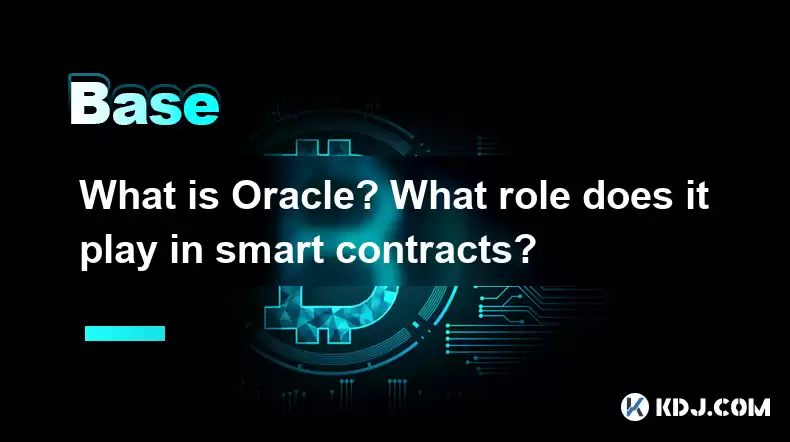
Key Points:
- Oracles bridge the gap between blockchain's isolated environment and the real world, providing external data to smart contracts.
- Smart contracts rely on oracles for real-world data, enabling functionalities impossible without external information.
- Different types of oracles exist, each with strengths and weaknesses regarding security, cost, and speed.
- Security and reliability are crucial considerations when choosing an oracle for a smart contract.
- The future of oracles involves advancements in decentralized solutions and improved data verification methods.
What is an Oracle in the Cryptocurrency World?
In the context of cryptocurrencies and blockchain technology, an oracle acts as a trusted intermediary. It facilitates the transfer of real-world data onto a blockchain network. Blockchains themselves are inherently isolated, lacking the ability to directly access information from outside their environment. Oracles solve this crucial limitation, enabling smart contracts to interact with the real world. Without oracles, many functionalities within smart contracts would be impossible.
The Crucial Role of Oracles in Smart Contracts
Smart contracts are self-executing contracts with the terms of the agreement directly written into lines of code. However, their functionality often hinges on external data that's not inherently available on the blockchain. This is where oracles come into play. For instance, a smart contract designed to automatically pay out insurance claims based on weather conditions requires an oracle to provide accurate and verifiable weather data. This data feeds into the contract, triggering the payment process once predefined conditions are met.
Types of Oracles: A Detailed Look
Several types of oracles cater to different needs and offer varying levels of decentralization and security.
- Centralized Oracles: These oracles rely on a single entity to provide data. While simpler and often faster, they are vulnerable to manipulation or censorship. A single point of failure makes them less secure compared to decentralized alternatives.
- Decentralized Oracles: These oracles distribute data provision across multiple nodes, increasing resilience and security. They are more complex to implement but offer higher levels of trust and fault tolerance. However, they often come with higher costs and slower speeds.
- Hardware Security Modules (HSM) Oracles: These utilize secure hardware components to generate and verify data, offering a high level of security. They are primarily used in applications requiring exceptionally high levels of security and tamper-proof data sources.
- Hybrid Oracles: These combine centralized and decentralized approaches, attempting to balance speed, security, and cost. They often use a centralized oracle for speed and a decentralized oracle for verification and security.
Data Verification and Security: Essential Considerations
The accuracy and security of the data provided by an oracle are paramount. A compromised or inaccurate oracle can lead to significant issues within a smart contract, potentially resulting in financial losses or even the exploitation of vulnerabilities. Therefore, rigorous verification mechanisms and robust security protocols are crucial when selecting and utilizing an oracle. Careful consideration should be given to the oracle's reputation, its track record, and the security measures it employs.
Implementing Oracles in Smart Contracts: A Step-by-Step Guide
Implementing an oracle into a smart contract typically involves the following steps:
- Choose an appropriate oracle: Select an oracle that suits the specific needs of the smart contract in terms of data requirements, security, and cost.
- Integrate the oracle into the smart contract: This usually involves using the oracle's API or SDK to connect the smart contract to the data source.
- Define data request parameters: Specify the exact data needed by the smart contract and the frequency of updates.
- Implement data validation: Incorporate mechanisms to verify the accuracy and authenticity of the data received from the oracle.
- Test thoroughly: Conduct comprehensive testing to ensure the oracle integration functions correctly and securely.
The Future of Oracles: Decentralization and Beyond
The future of oracles lies in further advancements in decentralization. The development of more robust and secure decentralized oracle networks is crucial for broader adoption and trust in smart contracts. This includes improvements in data verification methods, consensus mechanisms, and resistance to attacks. Furthermore, research into techniques for achieving higher speed and lower costs in decentralized oracle networks is ongoing.
Frequently Asked Questions:
Q: What are the risks associated with using oracles in smart contracts?
A: The primary risks involve data manipulation, oracle failure, and single points of failure (particularly with centralized oracles). These can lead to inaccurate contract execution or even complete contract failure. Robust security measures and the selection of trustworthy oracles are essential to mitigate these risks.
Q: How do oracles ensure data integrity?
A: Different oracles employ various methods. Decentralized oracles often use consensus mechanisms to ensure data integrity. Centralized oracles typically rely on strong security measures and rigorous verification processes. Some oracles utilize cryptographic hashing and digital signatures to verify data authenticity.
Q: Can oracles be used for anything other than providing external data?
A: While their primary function is providing external data, oracles can also be utilized for other tasks, such as triggering events, executing transactions, or performing computations off-chain.
Q: What are some examples of real-world applications of oracles in smart contracts?
A: Examples include decentralized finance (DeFi) applications (e.g., automated lending and borrowing platforms), supply chain management systems (tracking goods and verifying authenticity), insurance applications (processing claims based on external events), and gaming (verifying game outcomes).
Q: What is the difference between a centralized and a decentralized oracle?
A: A centralized oracle relies on a single entity for data, making it vulnerable to manipulation and failure. A decentralized oracle distributes data provision among multiple nodes, increasing resilience and security.
Disclaimer:info@kdj.com
The information provided is not trading advice. kdj.com does not assume any responsibility for any investments made based on the information provided in this article. Cryptocurrencies are highly volatile and it is highly recommended that you invest with caution after thorough research!
If you believe that the content used on this website infringes your copyright, please contact us immediately (info@kdj.com) and we will delete it promptly.
- Avalanche vs. Ruvi AI: Daily Sales Tell a Story of Crypto Disruption
- 2025-08-07 06:29:35
- DeSoc: The Crypto to Buy Now for a Decentralized Future (and Maybe 43x Gains!)
- 2025-08-07 06:50:16
- Arctic Pablo Coin: Riding the Meme Coin Wave with a Deflationary Twist
- 2025-08-07 07:18:13
- XRP Price Skyrocket? Decoding the Cryptocurrency's Next Move
- 2025-08-07 07:31:50
- Meme Coins in August 2025: Riding the Rally Wave
- 2025-08-07 06:56:08
- Big Whales, Altcoins, and Heavy Transactions: What's Moving the Crypto Market?
- 2025-08-07 06:29:35
Related knowledge
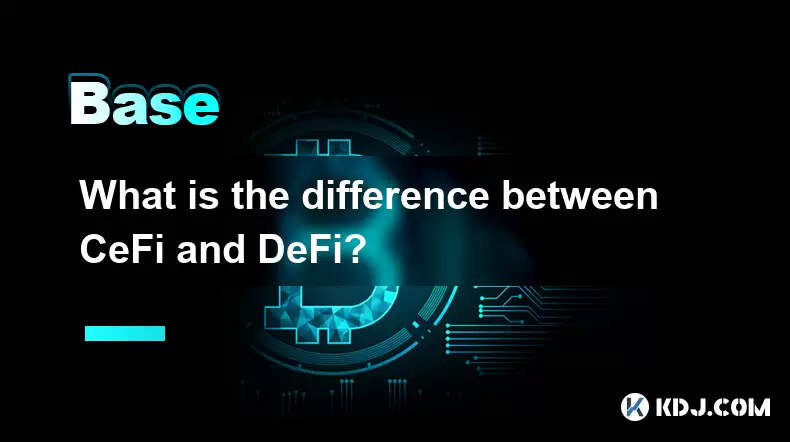
What is the difference between CeFi and DeFi?
Jul 22,2025 at 12:28am
Understanding CeFi and DeFiIn the world of cryptocurrency, CeFi (Centralized Finance) and DeFi (Decentralized Finance) represent two distinct financia...
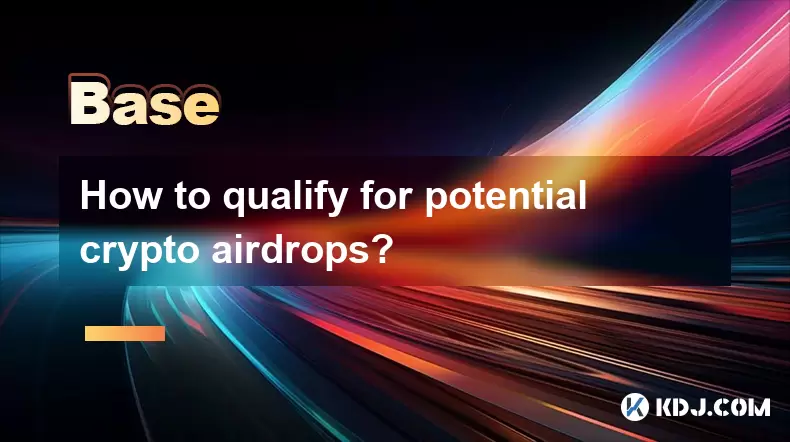
How to qualify for potential crypto airdrops?
Jul 23,2025 at 06:49am
Understanding What Crypto Airdrops AreCrypto airdrops refer to the distribution of free tokens or coins to a large number of wallet addresses, often u...
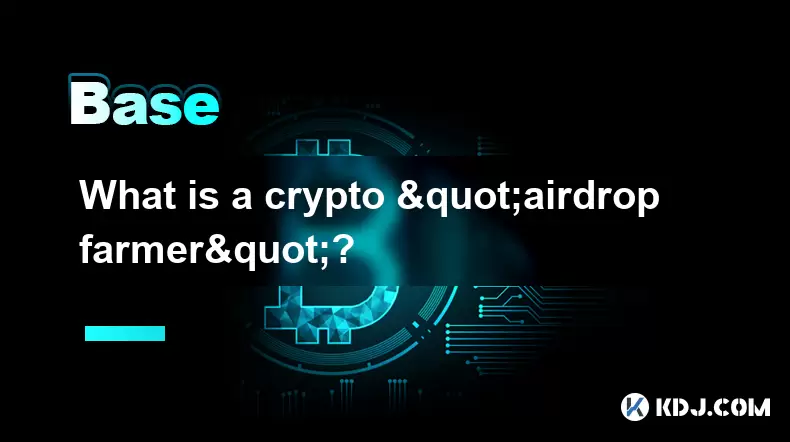
What is a crypto "airdrop farmer"?
Jul 24,2025 at 10:22pm
Understanding the Role of a Crypto 'Airdrop Farmer'A crypto 'airdrop farmer' refers to an individual who actively participates in cryptocurrency airdr...
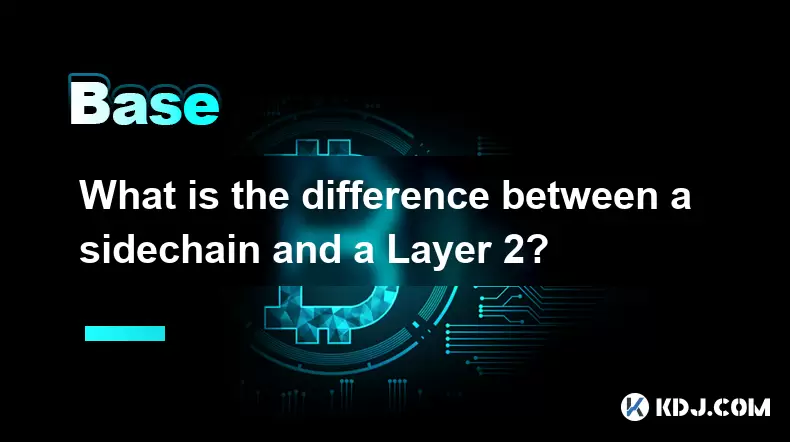
What is the difference between a sidechain and a Layer 2?
Jul 20,2025 at 11:35pm
Understanding the Concept of SidechainsA sidechain is a separate blockchain that runs parallel to the main blockchain, typically the mainnet of a cryp...
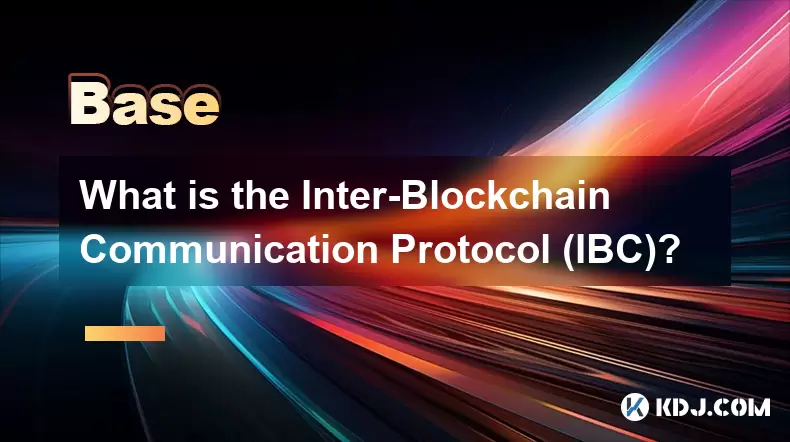
What is the Inter-Blockchain Communication Protocol (IBC)?
Jul 19,2025 at 10:43am
Understanding the Inter-Blockchain Communication Protocol (IBC)The Inter-Blockchain Communication Protocol (IBC) is a cross-chain communication protoc...
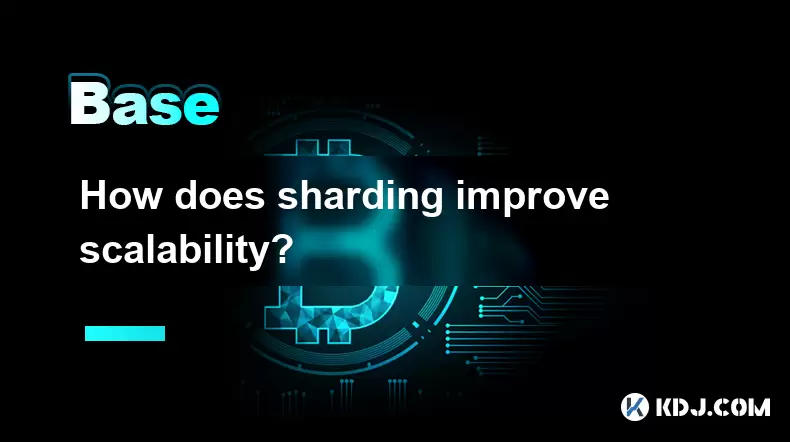
How does sharding improve scalability?
Jul 20,2025 at 01:21am
Understanding Sharding in BlockchainSharding is a database partitioning technique that is increasingly being adopted in blockchain technology to enhan...

What is the difference between CeFi and DeFi?
Jul 22,2025 at 12:28am
Understanding CeFi and DeFiIn the world of cryptocurrency, CeFi (Centralized Finance) and DeFi (Decentralized Finance) represent two distinct financia...

How to qualify for potential crypto airdrops?
Jul 23,2025 at 06:49am
Understanding What Crypto Airdrops AreCrypto airdrops refer to the distribution of free tokens or coins to a large number of wallet addresses, often u...

What is a crypto "airdrop farmer"?
Jul 24,2025 at 10:22pm
Understanding the Role of a Crypto 'Airdrop Farmer'A crypto 'airdrop farmer' refers to an individual who actively participates in cryptocurrency airdr...

What is the difference between a sidechain and a Layer 2?
Jul 20,2025 at 11:35pm
Understanding the Concept of SidechainsA sidechain is a separate blockchain that runs parallel to the main blockchain, typically the mainnet of a cryp...

What is the Inter-Blockchain Communication Protocol (IBC)?
Jul 19,2025 at 10:43am
Understanding the Inter-Blockchain Communication Protocol (IBC)The Inter-Blockchain Communication Protocol (IBC) is a cross-chain communication protoc...

How does sharding improve scalability?
Jul 20,2025 at 01:21am
Understanding Sharding in BlockchainSharding is a database partitioning technique that is increasingly being adopted in blockchain technology to enhan...
See all articles

























































































